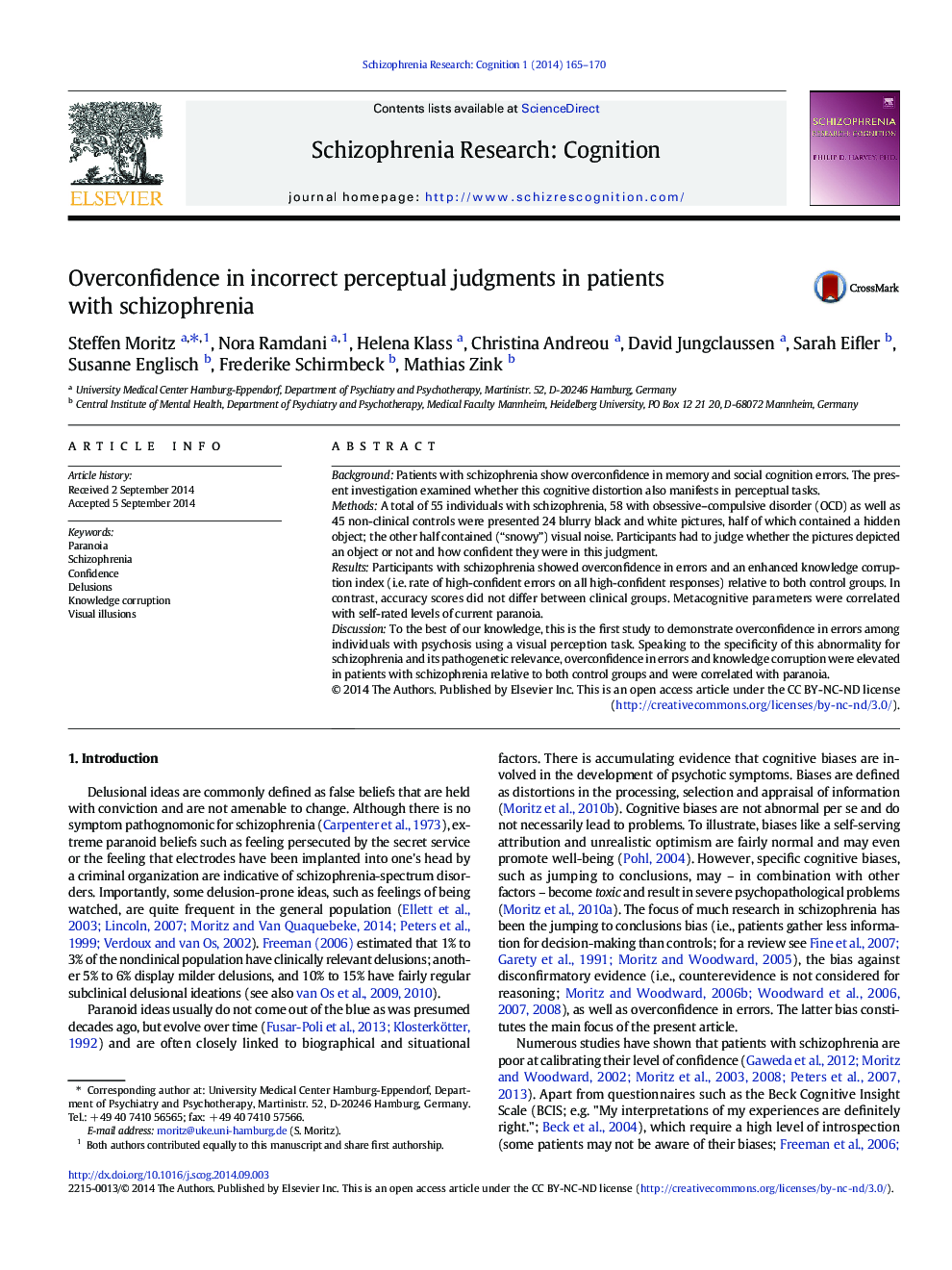| Article ID | Journal | Published Year | Pages | File Type |
|---|---|---|---|---|
| 4191735 | Schizophrenia Research: Cognition | 2014 | 6 Pages |
BackgroundPatients with schizophrenia show overconfidence in memory and social cognition errors. The present investigation examined whether this cognitive distortion also manifests in perceptual tasks.MethodsA total of 55 individuals with schizophrenia, 58 with obsessive–compulsive disorder (OCD) as well as 45 non-clinical controls were presented 24 blurry black and white pictures, half of which contained a hidden object; the other half contained (“snowy”) visual noise. Participants had to judge whether the pictures depicted an object or not and how confident they were in this judgment.ResultsParticipants with schizophrenia showed overconfidence in errors and an enhanced knowledge corruption index (i.e. rate of high-confident errors on all high-confident responses) relative to both control groups. In contrast, accuracy scores did not differ between clinical groups. Metacognitive parameters were correlated with self-rated levels of current paranoia.DiscussionTo the best of our knowledge, this is the first study to demonstrate overconfidence in errors among individuals with psychosis using a visual perception task. Speaking to the specificity of this abnormality for schizophrenia and its pathogenetic relevance, overconfidence in errors and knowledge corruption were elevated in patients with schizophrenia relative to both control groups and were correlated with paranoia.
